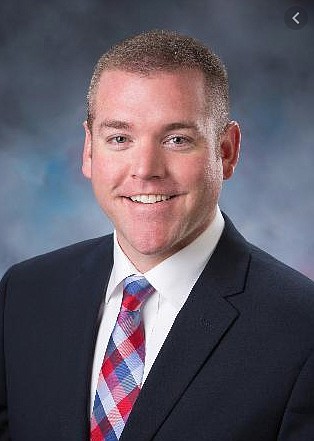House might not vote on teacher pay until next week
Lawmakers are picking up the pieces after a key appropriations bill that would fund public school teacher salaries failed to clear the Idaho House.
HB 354, the more-than $1 billion appropriations bill that would have paid for salaries and raises, was defeated in the House Tuesday on a 34 — 34 vote. Because the Idaho Constitution requires the Legislature to approve a complete budget, the matter went back to the Joint Finance-Appropriations Committee, where legislators were hopeful the committee could come up with a resolution over the next few days.
But Rep. Paul Amador, R-Coeur d’Alene, emerged from a meeting late Wednesday afternoon to report that those holding out hope of getting an agreed-upon appropriations bill back to the House probably shouldn’t hold their breath.
“We were pretty certain we had a solution, but there were competing interests,” Amador said. “I don’t know if anything will be introduced tomorrow, but there’s a whole 16 hours before JFAC meets tomorrow morning.”
The Senate, which boasts 10 of the committee’s 20 members, recessed until Monday. While Amador said some senators might stay for committee meetings, there was no guarantee JFAC could resume until Monday.
“Ultimately, we’re going to get a budget that helps support our schools and our teachers,” said Amador, who voted for HB 354. “I don’t like sending the perceived message that the legislature doesn’t support our teachers, especially in the last academic year, where they’ve been pulling double-time teaching in person and online.”
The heart of the dispute with HB 354 stemmed from legislators’ concerns the bill doesn’t address curriculum, a matter usually left to House and Senate education committees. A running narrative has strung through this year’s session by some conservatives about the notion of indoctrinating students. It’s a theme that has bounced through K-12 bills, college and university legislation and even pre-K grant funding that was turned away in late March.
HB 354’s signatories said funding Idaho’s teachers is, first and foremost, a sign of respect.
“This particular budget is a teacher career ladder,” Rep. Matthew Bundy, R-Mountain Home, told the House floor in support of the bill. “If we look around Idaho, there’s 15,000 or so public educators — public schools and charter schools — and we’re looking at the passing of their career ladder.”
But the appropriations bill was stymied by conservatives who wanted a bill that required language discouraging teaching social justice and critical race theory.
Social justice has come front-and-center in the national conversation over the last year in the wake of high-profile killings of Black people by police, as well as proposed election bills in state legislatures across the country that curtail or restrict voting, particularly among communities of color.
Critical race theory is the study of how societal power imbalances are shaped by societal structures — including, but not limited to, the law — rather than individual acts of racism.
Some legislators said the two concepts have no place in Idaho’s secondary schools.
“Our teachers are great and we need to fund our teachers,” Rep. Heather Scott, R-Blanchard, told the House. “But we need to protect our teachers from being forced to teach this garbage of social justice, including critical race theory.”
Scott Maben, director of communications for Coeur d’Alene Public Schools, said the debate that is holding up salary appropriations is academic, at best.
“Critical race theory is not in any of our curriculum,” Maben said. “Any curriculum we teach must first be approved by our board of trustees. We are not aware of any instance in which critical race theory has been taught in any of our schools.”
Maben added that locals with concerns about curriculum have an easy avenue to explore.
“If there is ever a concern about what is being taught in our schools, we welcome parents and community members to reach out to us,” he said.
The sticking point in appropriations bills is usually the bottom line, but that’s not the case with HB 354 and whatever iteration of the bill follows out of JFAC. Rep. Jim Addis, R-Coeur d’Alene, told The Press that his "no" vote was the first he’d cast against public teacher salaries, and that he’s going to use the opportunity to push for an extra $1 million toward the teaching of civics in schools.
“This strikes a good balance between policy and needed teacher pay,” Addis said. “The bill sponsor hopes to have the bill ready in the next few days, and I look forward to voting "yes" on this increase. If the bill does not make it to the floor, in this form, I will be voting to support our teachers based on the original H354 terms.”
Rep. Julie Yamamoto, R-Caldwell, was the first to rise in opposition to HB 354. She said she laments the fact that teachers were caught in a political battle.
“The majority of the teachers I had the pleasure and the honor to work with are good people,” she said. “If you sat down and had a conversation with them, if you were in their classroom, you would not see them advocating for social justice activism, some kind of ideology that we feel is not in keeping with what Americans see as a [freedom] and a way to have liberty.”

